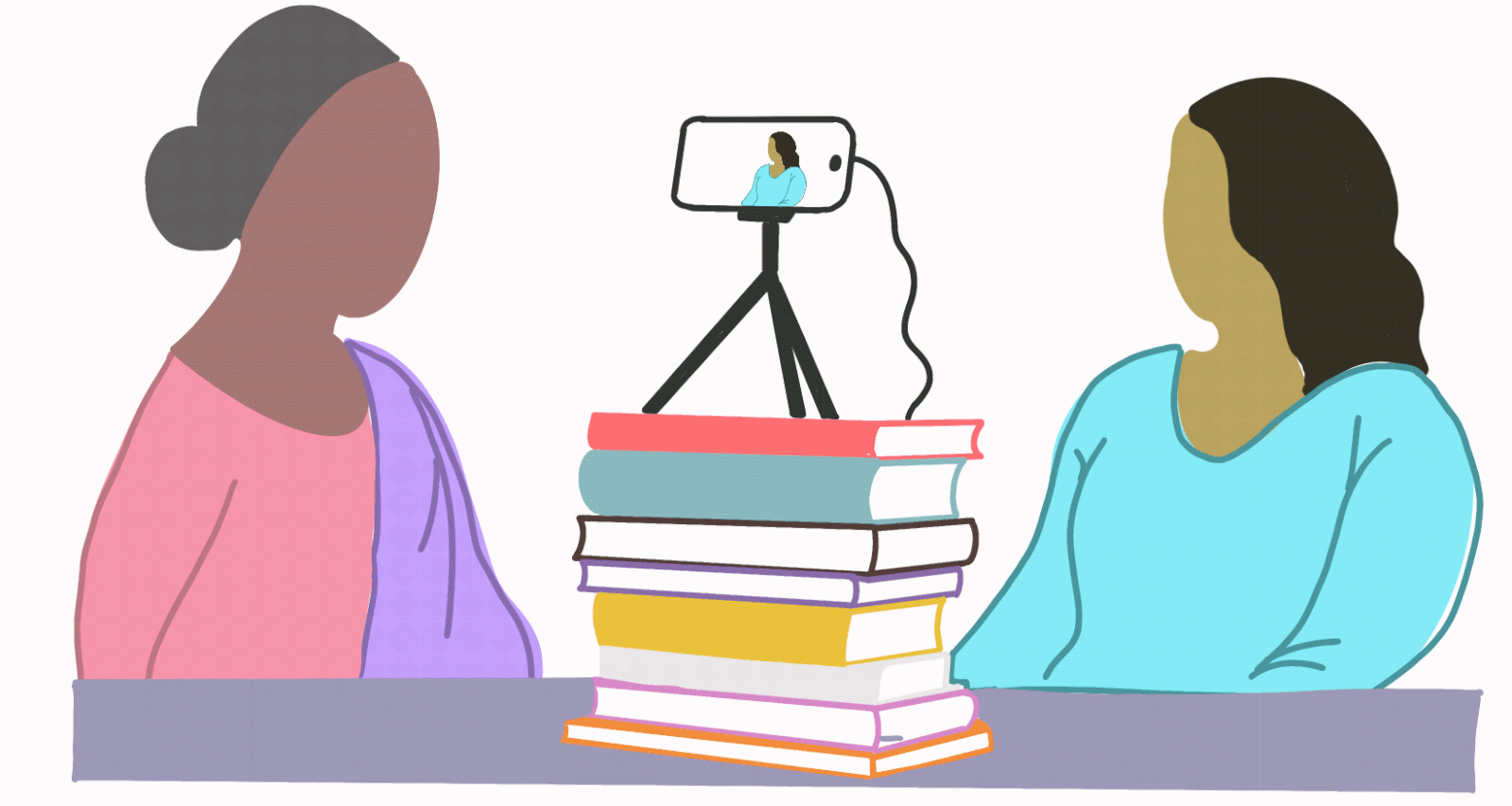
English | ᱥᱟᱱᱛᱟᱲᱤ
It has been three years since OpenSpeaks was developed as an open toolkit for audio-visual documentation of languages, especially indigenous, endangered and other low-resource languages. Like all other educational resources, it also needs an update. We plan to run a toolkit-wide update and a complete renovation of the first chapter — “Consent, Rights, Copyright and Open Licensing” — as it sets the foundation of the entire toolkit. Your inputs will be of great value to help us improve the resource.
The form is designed to collect specific inputs that are key to the new additions or improvements. But it also has room for you to share more that are not asked. Whether you are a professional in documenting languages or you only know others who are, we would love to hear from you. Every Open Educational Resource (OER) is built by a community and OpenSpeaks is no exception. With your permission, we would love to attribute for your contribution when we publish. You can prefer to be attributed anonymously or with your name and organizational affiliations.
The form will be open for three months (December 2020 – March 2021). However, the inputs collected by December 15 will be used for beta update that is due by December 31.
Share your inputs below | ᱥᱟᱱᱛᱟᱲᱤ

What’s next
We will use your inputs to improve the toolkit in two phases. Once updated, we will reach out to you again to update about the release. If you or anyone from your community are interested to translate the updated content into your language (including video guides), we will be happy to direct you to the source text and other source files. All the content including the source materials will be released under a CC-BY-SA 4.0 License.
Acknowledgement
This update of the OpenSpeaks toolkit is possible because of the Creative Commons Global Network Communities Activity Fund.
Project coordination
Ramjit Tudu and Subhashish P. will be responsible respectively for coordination of the Santali version and overall coordination.
❴ The below section is only for Santali-language speakers. If you are not a native speaker of Santali go to the form above. ❵

ᱚᱯᱮᱱᱥᱯᱤᱠ ᱫᱚ ᱯᱮ ᱥᱮᱨᱢᱟ ᱞᱟᱦᱟᱨᱮ ᱚᱯᱮᱱ ᱴᱩᱞᱠᱤᱴ ᱮ ᱵᱮᱱᱟᱣ ᱞᱮᱫᱼᱟ, ᱱᱟᱱᱟ ᱦᱩᱱᱟᱹᱨ ᱯᱟᱹᱨᱥᱤ ᱛᱮ ᱚᱰᱤᱭᱚ-ᱵᱷᱤᱰᱤᱭᱳ ᱰᱚᱠᱩᱢᱮᱱᱴᱮᱥᱚᱱ ᱞᱟᱹᱜᱤᱫ ᱾ ᱟᱥᱚᱠᱟᱭᱛᱮ ᱟᱫᱚᱜ ᱠᱟᱱ ᱯᱟᱹᱨᱥᱤ, ᱨᱤᱥᱚᱨᱥ ᱠᱚ ᱠᱚᱢ ᱢᱮᱱᱟᱜ ᱯᱟᱹᱨᱥᱤ, ᱟᱹᱫᱤᱵᱟᱹᱥᱤ ᱠᱚᱣᱟᱜ ᱯᱟᱹᱨᱥᱤ ᱮᱢᱟᱱ ᱠᱚ ᱾ ᱮᱴᱟᱜ ᱥᱮᱪᱮᱫ ᱟᱱ ᱨᱤᱥᱚᱨᱥ ᱞᱮᱠᱟ ᱜᱮ ᱱᱚᱶᱟ ᱠᱚᱦᱚᱸ ᱩᱛᱷᱱᱟᱹᱣ (update) ᱤᱫᱤ ᱞᱟᱹᱠᱛᱤᱜ ᱠᱟᱱᱟ ᱾ ᱚᱱᱟᱛᱮ ᱱᱤᱛᱚᱜᱟᱜ ᱠᱟᱹᱢᱤ ᱞᱮᱠᱟᱛᱮ ᱯᱟᱹᱨᱥᱤ ᱠᱚ ᱰᱚᱠᱩᱢᱮᱱᱴᱮᱥᱚᱱ ᱵᱟᱵᱚᱫᱽ ᱟᱯᱮ ᱥᱟᱱᱟᱢ ᱠᱚᱣᱟᱜ ᱫᱤᱥ-ᱦᱩᱫᱤᱥ ᱞᱮ ᱟᱸᱥᱚᱜ ᱠᱟᱱᱟ ᱾
ᱱᱚᱶᱟ ᱯᱷᱚᱨᱢ ᱫᱚ ᱯᱮ ᱪᱟᱸᱫᱚ ᱞᱟᱹᱜᱤᱫ ᱡᱷᱤᱡ ᱛᱟᱦᱮᱸᱱᱟ (ᱰᱤᱥᱮᱢᱵᱚᱨ ᱒᱐᱒᱐ – ᱢᱟᱨᱪ ᱒᱐᱒᱑) ᱾ ᱢᱮᱱᱠᱷᱟᱱ ᱰᱤᱥᱮᱢᱵᱚᱨ ᱑᱕ ᱦᱟᱹᱵᱤᱡ ᱛᱮ ᱥᱮᱞᱮᱫ ᱟᱠᱟᱱ ᱫᱤᱥᱼᱦᱩᱫᱤᱥ ᱠᱚ ᱤᱫᱤ ᱠᱟᱛᱮ ᱢᱤᱫ ᱵᱤᱰᱟᱹᱣ ᱩᱛᱷᱱᱟᱹᱣ ᱞᱮ ᱥᱚᱫᱚᱨᱟ ᱰᱤᱥᱮᱢᱵᱚᱨ ᱓᱑ ᱵᱷᱤᱛᱟᱹᱨ ᱛᱮ ᱾




The OpenSpeak toolkit is helpful. Now I think we should arrange workshops on these modules with the language documenters and activists who are not academics. The endangered language communities usually do not have well trained linguists or highly educated people. The OFDN needs to raise funds for training workshops on language documentation for all the modules to make it replicative and sustainable.
Thank you for your kind words, Zubairji. It would be an honour if you and other friends from your network could test the modules and share with us your feedback. At this moment we are unable to support with raising funds for the review. Hopefully something to collaborate for the future.
Openspeaks project is indeed very helpful for documenting languages and cultures. However I feel it should be expanded to some other aspects of life too which is integrated to the people. For example I have even seen indigenous sports in Assam such aspects are found everywhere in the world. It can also include blog posts focusing different languages and cultures.
It has been a great experience with the team and glad to be a part of this project. Looking forward to this with a refreshing look.
Thank you Abhinash for your appreciation and kind wishes. OpenSpeaks toolkit can actually be used for any kind of documentation work including indigenous sports. Please let us know if the underlying framework that OpenSpeaks is based on needs any particular change to accommodate things that you and others want to document. About your other suggestion, we have a section on creating a directory of tech and other resources. Take a look here We’re happy to accept drafts, edit and format to fit as a blog if you want to contribute.